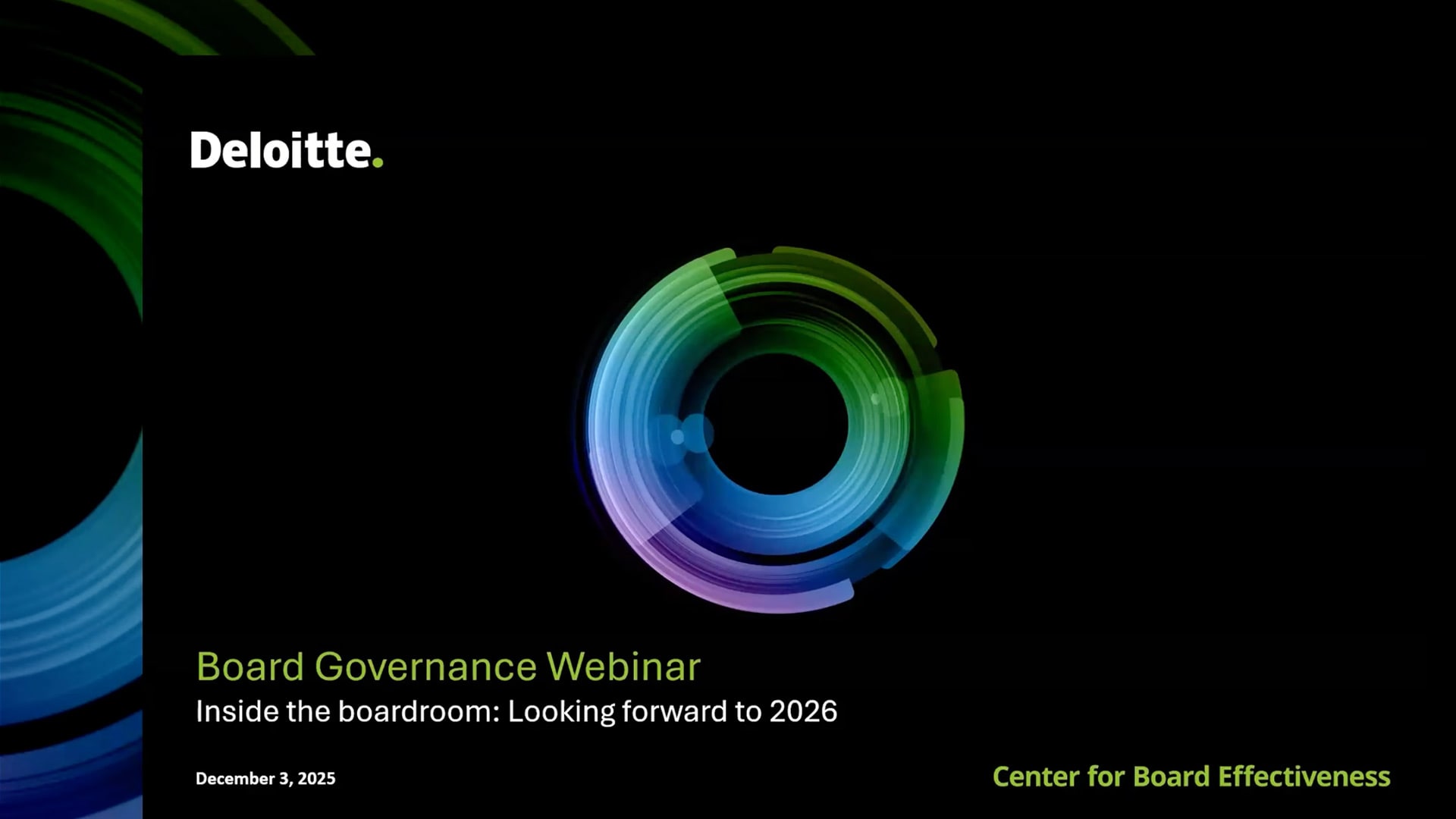Board governance in 2026
Adapting to complex risks and rising expectations
Strategies for the year ahead
A new dawn for board innovation
Board leadership is entering a new era. Heading into 2026, directors face a business climate that continues to grow in complexity. Strategies to identify emerging risks while pursuing growth opportunities can be useful when navigating the current landscape. The start of the year is an opportunity for directors to pause, consider upcoming board governance trends, and weigh choices that could shape the future of the enterprise.

What's shaping tomorrow's boardroom
Opens in new window
Trends to watch
In a recent Deloitte survey, directors and executives indicated their top governance priorities, which included:
Emerging tech disruption
Market volatility
Human capital concerns
Cybersecurity risks
As we look toward 2026 and beyond, the boards that lead will be those that move past simply adapting to change and assume a deliberate role in shaping it.



